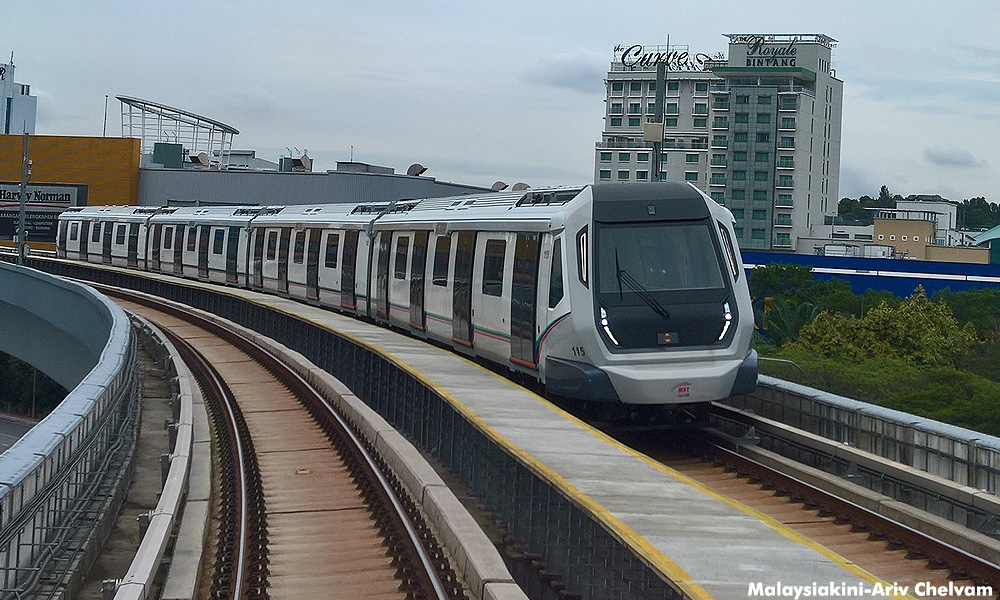
The launch of the second phase of Mass Rapid Transit (MRT) Sungai Buloh-Kajang (SBK) line tomorrow will mark a game changer in the train service of the country's transportation landscape.
In providing cheap and efficient public transportation, the SBK line will serve its role particularly in facilitating the underserved areas throughout its 51km route with 31 stations between Sungai Buloh and Kajang.
This is because areas in the northwest and southeast of Klang Valley are not served by any urban rail lines since the Kelana Jaya, Sri Petaling and Ampang Light Rail Transit lines and their extensions only serve the northeast and southwest quadrants of the Klang Valley.
MRT chief executive officer Shahril Mokhtar described the implementation of MRT's SBK line as a game changer in transforming the country's transportation landscape that would benefit the public in many ways, one of it to improve the transportation connectivity for residents living in the under-served areas.
Focus on underserved areas
Shahril said in the first phase of the completed MRT SBK Line, 11 out of 12 stations were built in areas where there was no rail service while phase two consist 13 out of 19 stations.
"This reflects MRT's commitment to improve the connectivity, especially suburbs areas, thus improving their mobility," he said.
Fares throughout the MRT SBK Line would be affordable, starting from RM1 to RM6.40, enabling lower and medium income groups to enjoy the privilege of MRT service, he said.
Shahril said MRT would reduce the people's burden as it would directly reduce their cost of living.
"Relatively cheaper than driving your own car with fluctuating petrol prices, no parking charges, less wear and tear on your vehicle and extending your car’s life span," he told Bernama.
From the environmental perspective, it would be greener because the train service does not use fuel and when people take the train ride, they would reduce the use of their cars, thus reducing air pollution, so it is a win-win situation for the environment, he added.
Increasing property value
Shahril said at a macro level, the MRT SBK Line would continue to boost the country's Gross National Income (GNI) through the creation of job opportunities and economic activities with 130,000 employment created during its construction period alone since 2011 to date.
Apart from that, areas along the SBK alignment would continue to show appreciation in property values and creating about 1.2 million square feet commercial and residential development.
He added that the implementation of the project would also see 280 million annual person-hours saved in worker productivity and RM20 billion per annum in time savings.
"I feel this is the first time the Malaysian government is spending a big amount of money on an infrastructure project and they are serious in building infrastructure for the people. The effort to improve on public infrastructure is a never ending endeavour, the same goes for the MRT," he said.
The second phase of the MRT SBK line will comprise 19 new stations, of which seven are located underground.
The 19 new stations are Muzium Negara, Pasar Seni, Dataran Merdeka, Bukit Bintang, Tun Razak Exchange Centre, Cochrane, Maluri, Taman Pertama, Taman Midah, Taman Mutiara, Taman Connaught, Taman Suntex, Sri Raya, Bandar Tun Hussein Onn, Batu Sebelas Cheras, Bukit Dukung, Sungai Jernih, Kajang Stadium and Kajang station.
Each train set serving the MRT SBK line will have four cars, allowing a total capacity of 1,200 passengers per trip with daily ridership estimated at 400,000 passengers.
The trains will run at a frequency of 3.5 minutes during peak hours.
- Bernama


No comments:
Post a Comment
Note: Only a member of this blog may post a comment.